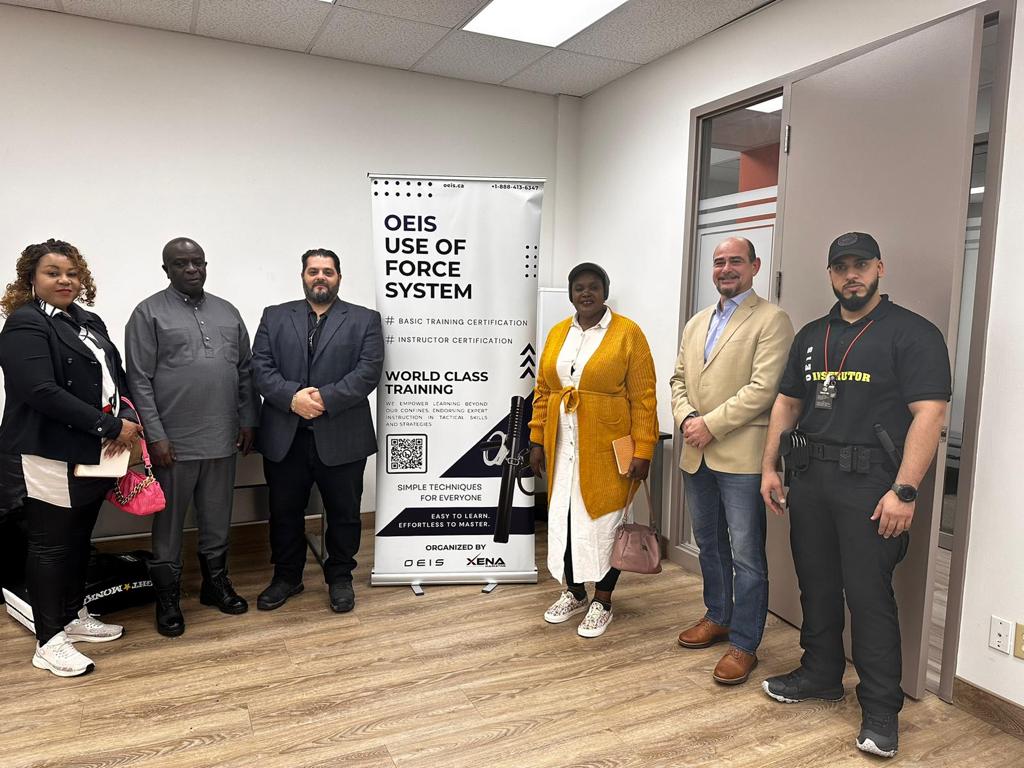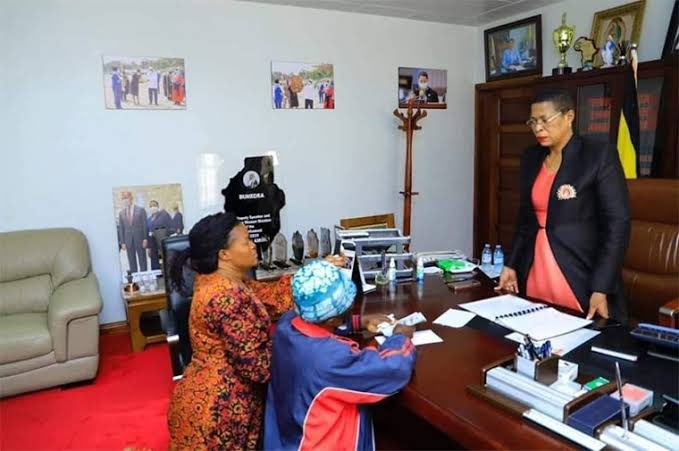Various academic surveys, many of them conducted by Makerere University Mbale branch legal researchers and law students, have established a causal connection between a lack of administrative law knowledge and worsening conflicts in local governments. These conflicts eventually drain funds meant for other crucial programs when local governments are compelled by court decisions to pay damages in lawsuits. A fusion of three scenarios is important here, which has resulted in court-awarded costs of up to 1.5 billion shillings.
In the above rulings, where LCV Kapchorwa and Mayor Mbale Municipal Council had dismissed their town clerks and CAOs when they were not clothed with the powers to do so. In Butaleja, the situation was no better, where its Chief Administrative Officer had also, without statutory authority, relieved one of the subcounty chiefs of his employment contract.
The civil suits in Omalla vs. Butaleja DLG and Gyebi Bukeni vs. Mbale Municipal Council paint a glaring picture of how even well-schooled administrators mess around due to a failure to follow the law.
To help address the factors that militate against proper service delivery in local governments, the study recommended core areas of intervention. These included mandatory skills in administrative law, continuous capacity building, using alternative dispute resolutions (ADRM) to solve conflicts, and even prayer as a way of managing conflicts.
The survey also outlined other recommendations, such as nobody attaching salaries of civil servants or LG properties, as this would jeopardize service delivery towards mwanainchi. Many contractors and suppliers have been colluding with LG staff to attach property meant for LGs. The LG Act insulates LGs on issues of debts, as one cannot attach or garnish any salary accounts. For example, how can one garnish PDM or Emyooga funds, wondered one of the researchers. Such accounts should be preferentially treated, as the money is meant to help locals achieve economic development, not to settle local government debts. Many local governments were singled out for encouraging their staff to undertake skills in administrative law, including Mbale District, Manafwa District, Sironko District, Kumi, Kapchorwa, and Bukedea, among others.
It is a firmly held notion in academic circles that if one has not researched, he should not even open his mouth to say something in public, as academic research helps enhance credibility on any inferences at hand. Makerere University Mbale branch recently commissioned a survey titled ‘How can knowledge of administrative law officers’ course enhance improved performance among Local government employees in the Eastern region. A number of districts were purposely sampled. It is fair to say that such surveys help the academic community to refute or accept certain policy decisions.
Without being clothed with powers to terminate, the Chief Administrative Officer of one of the districts in Bukedi region sacked his subcounty chief instead of interdiction and referral to the District Service Commission for disciplinary action. He consequently exercised authority he was not vested with. An LCV chairman also interdicted his Chief Administrative Officer (CAO) in the Sebei region and put him on half pay, instructing him not to move outside the country without his permission. When the aggrieved persons petitioned the court, it was held that the actions of the CAO sacking his subcounty chief were illegal actions and thus invalid decisions. The interdiction of the Kapchorwa CAO by the LCV chairman some years back was also deemed unlawful. Such unlawful decisions are another route where local governments lose funds.
Many of the above actions of terminating staff without recourse to laid-down procedures are premised on ignorance of the law, but more importantly, the remedies awarded by the court may divert resources meant for other core sectors like education, roads, and health, etc. On average, it is established that such actions lead local governments to spend over about 500 million to 1 billion shillings per annum, and such funds are not provided for within the budget, meaning they encroach on funds meant for other key sectors.
The above follows revelations in a case law trail, which established that even highly placed officers like Chief Administrative Officers don’t factor in the law in their actions. If an officer at the level of, say, a CAO can disregard longstanding procedures on how a local government employee can be terminated and by whom, then how would you expect a subcounty chief or parish chief, who are much less in rank, to conduct themselves without askance in their workplaces? This, therefore, calls for deep knowledge of the law so that administrators know the legal consequences of their actions. I have also come across some individuals who were positing that even people who are well-schooled in law are still thieves. My answer has been that if such persons with immense knowledge of the law also steal even in the judiciary, the situation may have been much worse if they had not studied law at all; they would have become very dangerous criminals. It is even trite to emphasize the relevance of law, as this is common knowledge that legal knowledge puts one at an edge higher than other employees. It is, therefore, a validly held view that the knowledge of the law will keep many employees in their fold, but above all, teach them how to follow procedures at the workplace and incessant consultation. For example, when you are about to err, ask yourself what the law says on such an expenditure or policy.
Recently, the Government of Uganda rolled out the Parish Development Model (PDM) and others like Emyooga as a policy shift calculated at empowering citizens to become economically and financially viable individuals. However, police statistics indicate that many of the PDM operations managers, like parish chiefs, are messing up the programs leading to their arrests by authorities. Administrative law, if well trailed, has enough principles that it can imbue to the local government staff in the sampled districts. During the survey, it was established that the acquisition or studying of the two-month course will expose learners to rules of natural justice, which are well articulated under Uganda’s constitution Art 42. This highlights fair hearing for all those appearing before an administrative tribunal, including making it an offense to condemn persons unheard or, as it is said under Latin (Audi alteram partem), meaning don’t condemn unheard. Always allow the accused persons to state their side of the story. Even Adam in the Bible was granted an opportunity to explain to God why he had disobeyed him when he was put in the Garden of Eden, though God was already knowledgeable of what the trio had done. But, in the interest of natural justice, their side of the story had to be told.
The other principles that can be learned can be connected to operating within permissible legal parameters. Many times, even people within public service want to contradict the provisions of the law. Administrative law teaches us about the consequences of exercising authority not vested with. It also teaches administrators to always operate within the law, since if power is improperly exercised, it can lead to issues of litigation, as it was in the Kapchorwa situation above, where its chairman interdicted a chief administrative officer or where the Butaleja CAO sacked his subcounty chief or even in Mbale Municipal Council where the mayor threw out a town clerk out of office and locked it. In a democratic society, it is envisaged that the law will regulate every sphere of public life so that whatever public action taken should be supported by an enabling provision. Any decision taken in the absence of an enabling provision becomes null and void. All actions of state actors should be traceable to some existing statute.
In Uganda, during the colonial days, some errors were committed in the administration of the country where the Governor usurped virtually all powers of the state, wielding powers of the state and becoming in charge of the executive branch, the head of judicature, and legislature against very strong recommendations on how to administrate a country. A French philosopher by the name of Professor Montesquieu and others like Maitland, including Dicey, had discouraged against the fusion of state power into one individual, as much authority into one person may make such a person become a dictator. The knowledge of constitutional law will expose learners to the tripartite system of governance, particularly knowledge about the three organs of government, where the legislature, executive, and judiciary have certain mandates that cannot be taken away by even the law. Uganda, as a country, also practices the doctrine of checks and balances. This knowledge cascades down to local governments where even in our councils down here, politicians have certain roles and technocrats also have their roles, and there are legal parameters and non-usurped powers of the other.
Administrative law will expose learners to public accountability. For example, it is a settled principle of law that those who exercise power must be ready to account for any excesses or any attendant shortcomings therein. Similarly, public bodies will be compelled to perform their statutory duties where somebody can petition court to compel a public body to perform a certain duty that it is slumbering upon. No bureaucrat oversteps his boundaries. How about the knowledge of vicarious offense and mens rea? Nobody can afford to be ignorant of such knowledge.
Makerere University has, through the College of Education and External Studies, established numerous centers and branches across the country within the vicinity of every local government from Mbale to Kamuli, Iganga, and Busia and beyond. With their motto of “Taking Makerere University to the people and bringing the people to the university,” they are virtually everywhere in Uganda. Many local governments are making use of such centers under the close supervision of College of Education and External Studies professors and the vice-chancellor.
The course outline of the administrative law course reveals that the units being taught, like introduction to law, criminal law, constitutional law, criminal procedure, and local government law, among others, are calculated at exposing learners to core principles of law. Many of the people interviewed during the survey were satisfied with the training and lauded everyone to embrace the training if they are to faithfully execute public tasks without veering off from policy positions. The words of District Education Officer Madam Lydia Musungu are worth replicating here, where she vowed to compel all her headteachers in Mbale District to undertake studies in administrative law. It is a good course, she affirmed, as it will help militate against certain forces that undermine effective service. It will imbue administrators with knowledge on common crimes like defilement and rape and their heavy punishments. The knowledge of statutory punishments in place may scare off those who had wanted to do wrong things, she insisted.
The groundbreaking survey on the role of law in curbing corruption and aiding local government employees’ work well, in the stratas, sampled over 300 employees in the study districts, and 90% of the respondents observed that many employees who were involved in commission and omission of white-collar crimes at their stations of work were due to poor knowledge of the law. Where glaring knowledge deficits in areas of penal laws such as the Anti-Corruption Act and the Penal Code Act were poor, hence the sweeping hypothesis and academic conclusion that knowledge of administrative law is a necessary remedy to cure the identified vice.
In the past, it was unthinkable to say that a government employee could steal. Currently, many employees, whether in the public sector or private sector, have been involved in white-collar jobs. No wonder that the Nigerian singer Kute sang and said those who steal using the pen rob more than those who use the gun. Many employees are still in prison implicated over corruption, other crimes like defilement and rape, and those still outside and not yet within the fangs of the law enforcers are encouraged to heed to this legal survey and its authoritative findings and conclusions.
Mr. Masiga is a researcher and Ph.D. student from Mbale.




















